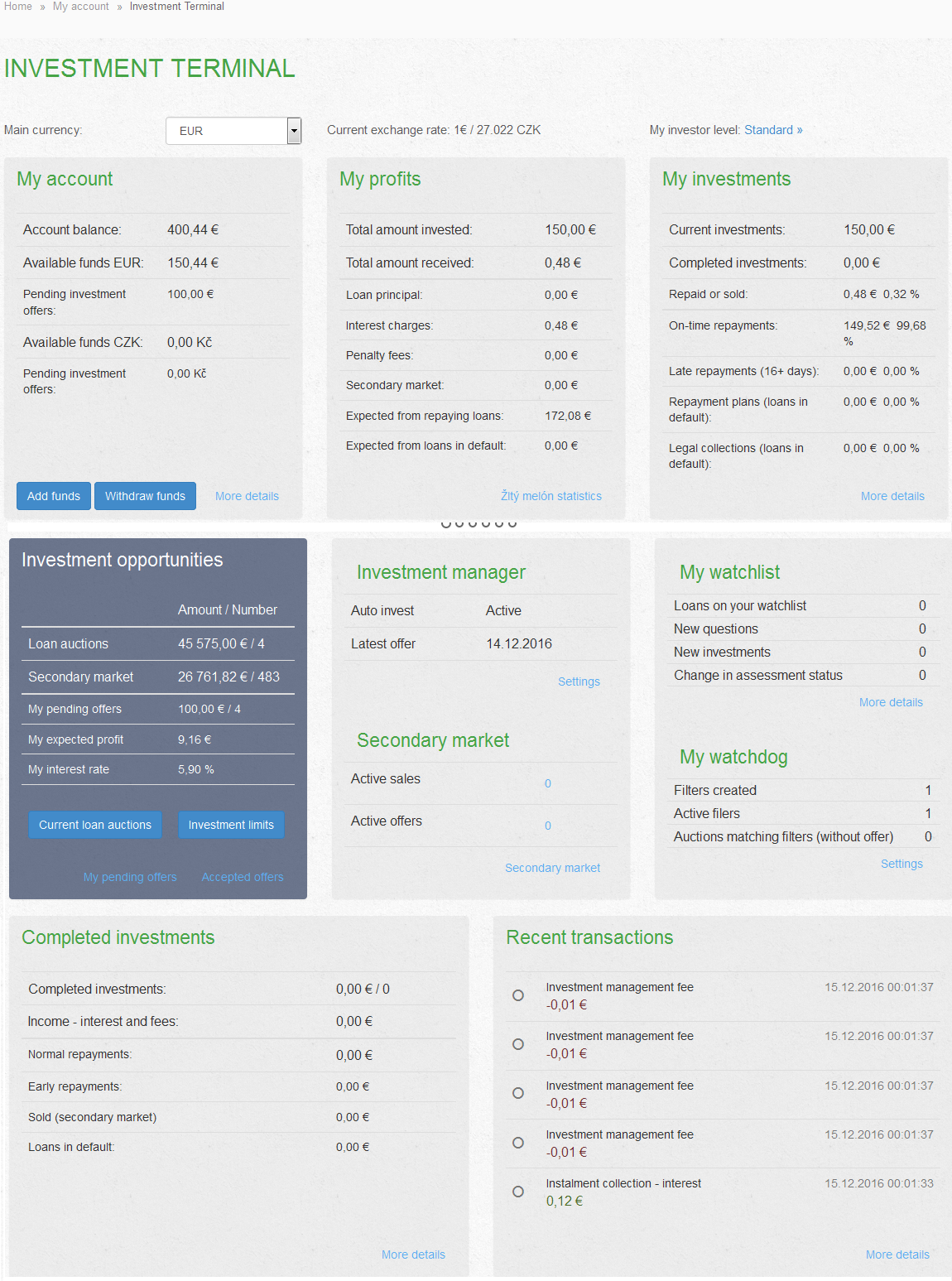What is Finnest.com about?
Finnest.com is the only platform successfully providing modern corporate finance for well-established Mittelstand companies (no start-ups). Borrowers are mostly AAA-like rated brands and industry leaders that have been on the market for years (often decades) and are able to demonstrate a sustainable and profitable growth path.
These top-companies are actively seeking alternatives to their traditional bank loans and want to diversify their finance mix. For the first time, Finnest.com gives these Mittelstand champions access to the capital market. The platform is a 21century version of a classic corporate bond bookbuilding process and provides end-to-end financing solutions.
Currently, Finnest.com is licensed and active in Germany, Austria, Switzerland and Slovakia.
What are the three main advantages for investors?
1.) Investors get access to a completely new class of investments, previously reserved for a handful of professional investors.
2.) On Finnest.com, investors select the interest rate of their choice! Only if the company agrees to pay this annual rate (or more), will a deal be closed.
3.) Investors can invest in local and regional companies that create jobs and income in their area.
What are the three main advantages for borrowers?
1.) For the first time, Finnest.com provides this segment of well-to-do Mittelstand borrowers with access to the capital market previously reserved for large corporations.
2.) Mezzanine financing as provided via Finnest.com strengthens these companies’ balance sheets.
3.) An enormous PR & loyalty effect – when customers invest into “their†brand, the term “brand messenger†gets a rich new meaning.
What ROI can investors expect?
On Finnest.com, investors select their interest rate of choice. On average, companies have paid out 5.5% annually fixed interest rates. The concept works: a Finnest investor invests about 7.000 Euro per transaction, that is roughly 20 times higher than on other online platforms.
Finnest charges investors a fee of 1% (minimum 25 Euro). Doesn’t a high fee hinder diversification?
We are one of the few (the only?) platform that charges an investor fee. It’s 1% of the invested amount. That means if an investor invests 7.000 Euros, she/he is charged 70 Euros once. That’s it. We haven’t learned of any investor who would not invest because of this small fee.
Finnest.com uses subordinated loans (‘qualifiziertes Nachrangdarlehen’). An Austrian court recently ruled that this structure severely disadvantages investors. Why did you choose this structure rather than standard loans?
Headquartered in Austria, Finnest.com is licensed by the Austrian AlternativfinanzierungsGesetz (alternative financing law). This law (just like its German counterpart, the Schwarmfinanzierungsprivileg) actually requires us to use subordinated loans. It’s the tool the law selected.
The court ruling you refer to, addressed one specific contract by one single issuer who did not use any legally checked platform, but decided to do this financing on his own. Apparently, that was not such a smart idea – that contract must have been quite bad and the court ruled accordingly. Our contracts are thoroughly checked by leading law firms in each jurisdiction and have been presented to the financial authorities, of course.
How did you start Finnest.com?
For many years, Günther Lindenlaub, my co-founder, had been in charge of capital market transactions for one of Europe’s leading banks. While he saw, that large corporates keep using tools like corporate bonds to diversify their finance mix, the banks we not able (or willing) to offer something similar to the Mittelstand. But bonds are too complex and costly for the Manners and Almdudlers of this world. So, he decided to create his own platform – Finnest.com.
 Is the technical platform self-developed?
Is the technical platform self-developed?
Yes. It was built by a team that had previously built part of ING-Diba and AustroControl, the Austrian flight control agency. These guys know everything about stability, security and usability. We like to joke that we did not build a Tesla but one of those 80s’ Volvos with the iron bars in the doors. Very safe, very stable, drives, and drives, and drives.
Was the company funded with venture capital? Is the company profitable now?
We were lucky to attract Speedinvest, the largest Austrian VC, as our seed investor. And we have added a carefully selected group of international angels and VCs since. As we are still growing fast, we are not profitable, yet. But we are doing very good business.
Are there any new features for the platform your team is working on? What about a secondary market?
We are expanding: As we are speaking, our team is in the last phases of building a new, second platform. It will provide a similar service as Finnest.com does, but it will address a different market segment: large corporations on the one hand and professional as well as institutional investors on the other hand. Modern corporate finance XL, so to say.
Which country are you most successfully attracting investors in?
Even though we originate in Austria, Germany is our prime market. Already today, the majority of our investors comes from Germany and we have just hired new team members focusing mainly on the German market.
You plan an expansion beyond Germany, Austria and Switzerland. What can you tell us about your next market(s)?
Our industry is a highly regulated one, governed by national rules and regulations. But with the new platform, we will be able to provide a pan-European service. That will open a completely new scale of opportunities for us.
Do you plan to cooperate with institutional investors? In which way?
Yes, definitely. The new platform will be customized for their interests and needs.
What is the current state of the market in Austria?
With the passing of the AlternativfinanzierungsGesetz, (alternative financing law), the online financing market grew at a rapid pace. We have now more than a dozen platforms and high 2-digit number growth rates. But of course, business in Austria is always only a fraction of that in Germany. Germany is the main market we are focusing on.
Where do you see Finnest in 3 years?
We believe, that in 2020 there will be three main platforms financing larger, successful companies across Europe. Finnest.com should be one of them.
P2P-Banking.com thanks Joerg Bartussek for the interview.


